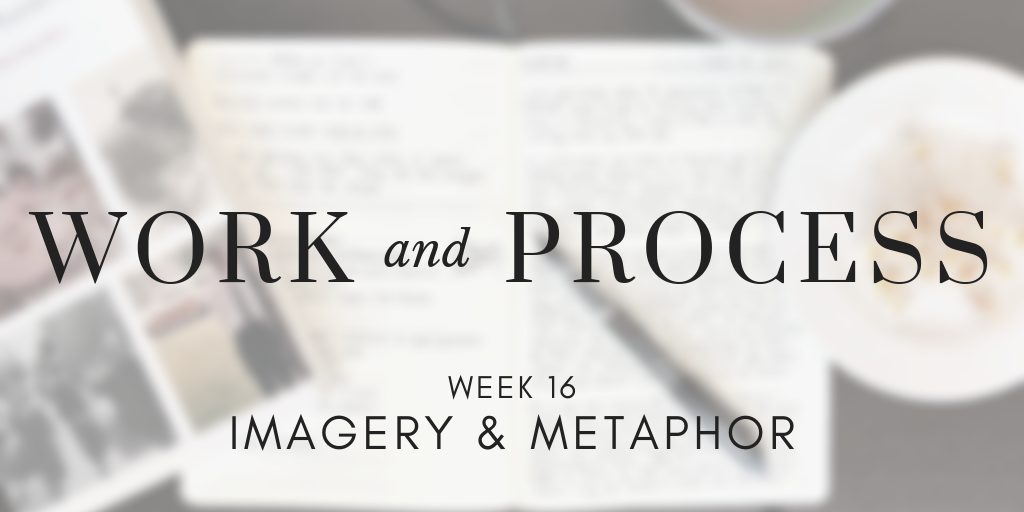|
I listen to a daily five-minute podcast called The Slow Down, in which U.S. Poet Laureate Tracy K. Smith talks about and reads a poem. (That’s it. That’s the podcast.) It’s a lovely little drink of poetry each day, and if you’re a podcast and/or a poetry person, I highly recommend checking it out. I don’t love all of the poems, and to be honest, because I don’t retain and process information auditorily as well as I do visually, usually couldn’t tell you what poem Smith read that day or what it was about, but there was this poem featured all the way back in January that I absolutely cannot stop thinking about. That poem is “Swatting Flies” by Austin Smith. Tracy K. Smith introduces this poem by saying, it “begins with the memory of swatting flies, but it covers ground quickly, darkening and shifting scales, so that by the time it’s over, it’s hard for me to go on thinking of any violence as small.” I love this introduction because it stuck with me, that mention of “shifting scales,” because it’s the exact same feeling I had when I first listened to the poem. That dizzying sense of size and perspective changing all of a sudden, kind of how I imagine Alice would have felt, eating or drinking in Wonderland. Over the past couple months, I’ve thought about the poem over and over, how (I feel, at least) it’s so successful, so efficient in delivering that gut-punch at the end, and I’d love to kind of feel my way into it today, with you. First, I think “Swatting Flies” is kind of brilliant in its building of images. Most writers do it, to some extent or another; we use words to create imagery, that is, descriptive sensory or figurative language, sometimes by including details that invoke the five senses (touch, sound, smell, sight, taste) or tools like metaphor, simile, alliteration, personification, hyperbole, or most often a combination of both. Again and again, Smith creates these images of fly-swatting: “light and nimble” (words that, in their suppleness, the quickness with which they flow off the tongue, demonstrate another way to use diction, as we talked about in the past three weeks, because the words themselves kind of feel swishy, if that makes sense, like the action of the fly-swatter itself), or “a square / Of blue plastic mesh, stippled / To let the air pass through” (a more concrete description of the fly-swatter). I especially like this chain of images: You even swatted your own bare calf, There’s the sensory description of the “red welt”, the simile (a comparison between two different things using “like” or “as”) likening the slow disappearance of the welt to the slow disappearance of a condensation ring left by a cold drink. These images are, to use a narrative term, low-stakes. The mistake of swatting himself doesn’t have any real or lasting repercussions. There’s no harm done. Look, the mark is disappearing already, as if it never happened. But this no-consequence scenario is almost immediately followed by the personification (the giving of human traits to non-human things) of the flies. These flies “who wrung their hands among / The breadcrumbs in the kitchen, / Begging you for mercy”, these flies “Making love on the windowsills / In the upstairs bedrooms / Where they had believed / Themselves safe.” These flies who are not human but who are engaged in relatable (some might say universal) human pursuits--prayer, sex. And so, I think, this combination of imagery, simile, and personification prepares us for the ending. The image and the turn. The last we see of the boy swatting flies is the fly-swatter itself, “clogged with the dead,” and the flies, feeling the movement of the air, fleeing. But with a metaphor (or more specifically, a simile, but they're both comparisons), the image shifts, spirals from this tiny summer scene of the boy and the flies and the fly-swatter, growing and growing huge, almost out of proportion, until they are not just flies but “Like people who flee a house / Moments before the drone strike.” Damn. I mean, what a wallop. What a blow. What a way to end a poem. And although I love this turn, the way the single word “like” separates the flies from the people, the swatter from the drone strike, I think part of what makes it so powerful is the way Smith has stacked these low-stakes images one on top of another throughout the poem, the boy with the swatter, the cold drink, the leisurely summer reading, until we get to the personified flies, the ones who are just trying to go about their lives the way we would, don’t you see?, and then it turns. Then the twist. Then the reveal. Then this meaning, these huge implications, these things to consider about ourselves and our violence. Next week: NOT-DOING. I once had a theory that there are four types of people in this world: people who define themselves by what they have, people who define themselves by what and whom they love, people who define themselves by who they are, and people who define themselves by what they do. At this point, it’s probably no surprise to you that I am a do-er. I love doing things. Accomplishing stuff. But I’m in a bit of a weird spot with my Secret Project, and it’s gotten me thinking about the value of not-doing, of sitting back, not even to reflect, just to… even avoid? And I’d like to explore that a bit more with you. Let’s not-do this thing next Sunday at tracichee.com and/or post your own responses with the hashtag #workandprocess. Make it so. <3 Work and Process is a year-long journey of exploring and reflecting on the artistic process, craft, and working in a creative field. Each Sunday, I’ll post some thoughts, wonderings, explanations, and explorations on writing and creativity, and by the end of it, I hope to have 52 musings, examinations, meanderings, discoveries, bits of joy or inquisitiveness or knowledge to share. In each post, I’ll also include a topic for the following week, so if you happen to be inspired to question/wonder at/consider your own work and process, you’re welcome to join me. We’ll be using the #workandprocess hashtag across all social media platforms, and I hope we find each other to learn and connect and transform on our creative wanderings. Comments are closed.
|
ARCHIVES
February 2024
CATEGORIES |


 RSS Feed
RSS Feed